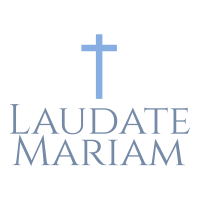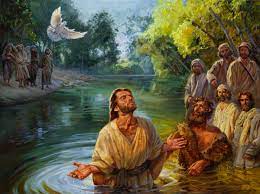The Feast of the Baptism of Our Lord is a cornerstone in the Catholic liturgical year, commemorating a pivotal moment in the life of Jesus Christ. This feast holds profound significance within the Catholic tradition. It marks the conclusion of the Christmas season and ushers in the public ministry of Jesus, celebrating his baptism by John the Baptist in the River Jordan.
The Event's Scriptural Foundation
According to Catholic teaching, the baptism of Jesus, as narrated in the Gospels of Matthew, Mark, and Luke, is a moment of great theological depth. It’s a scene where heaven and earth converge: the heavens open, the Holy Spirit descends like a dove, and the voice of the Father declares Jesus as His beloved Son. This event is seen as a manifestation of the Holy Trinity and an affirmation of Jesus' divinity and mission as the Messiah.
Liturgical Observance in the Catholic Church
In the Catholic Church, the Feast of the Baptism of Our Lord is a day of deep spiritual reflection. It is marked by special liturgies that often include the blessing of water, a symbol of purification and a reminder of baptismal grace. This feast reiterates the importance of baptism in Catholic theology - not just as a rite of initiation, but as a sacrament that washes away original sin, marks the believer as a child of God, and incorporates them into the body of Christ, the Church.
Theological Significance
From a Catholic perspective, the baptism of Jesus holds multifaceted theological implications. It represents Jesus’ first public affirmation of His mission to save humanity. The Catholic Church teaches that though Jesus was sinless and had no need for baptism, His choice to be baptized was an act of humility and obedience - a model for all believers. This event also prefigures the sacrament of baptism, which is fundamental to Catholic faith and life.
Baptism as a Sacrament of Initiation
The feast is a time for Catholics to reflect on the sacrament of baptism. It's a reminder of their own baptism, a moment when they were cleansed of sin, reborn as children of God, and welcomed into the Church. This reflection often includes a renewal of baptismal promises during Mass, reaffirming one's faith and commitment to living out the Gospel message.
Conclusion
For Catholics worldwide, the Feast of the Baptism of Our Lord is a time of joyous celebration and solemn reflection. It commemorates a seminal event in the life of Christ and reinforces key aspects of Catholic doctrine and practice, especially regarding the sacrament of baptism. This feast not only recalls the past event of Jesus' baptism but also invites the faithful to live out their baptismal calling in the present, striving to emulate Christ in their daily lives.

